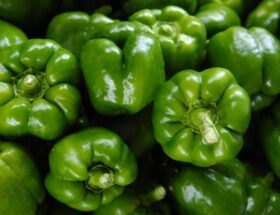Bees—those tiny, buzzing powerhouses that play a monumental role in our ecosystem are so important. From pollinating our crops to supporting biodiversity, bees are indispensable. However, they face numerous threats that endanger their populations. Here’s why bees are so crucial and five actionable steps we can take to protect them.
Why Bees Matter
- Pollination Powerhouses: Bees are prolific pollinators, responsible for pollinating about 75% of the world’s flowering plants and 35% of our food crops. Fruits, vegetables, nuts, and seeds all depend on bees for their growth and development.
- Biodiversity Champions: Bees support the growth of various plants, which in turn provide habitats for other wildlife. This intricate web of life ensures ecological balance and biodiversity.
- Economic Value: The economic contribution of bees through pollination is estimated to be around $235 billion to $577 billion annually. This includes the value of crops directly dependent on bee pollination.
- Food Security: Without bees, many of the foods we take for granted would become scarce and expensive. They are crucial for the production of nutrient-rich crops like fruits, nuts, and vegetables.
- Environmental Indicators: Bees are sensitive to environmental changes, making them excellent indicators of ecosystem health. A decline in bee populations can signal broader environmental issues.

Five Things We Can Do to Protect Bees
- Support Organic Farming: Organic farming practices avoid the use of synthetic pesticides and fertilizers that are harmful to bees. By choosing organic products and supporting local organic farmers, you contribute to a healthier environment for bees.
- Buy Local Honey and Bee Products: Supporting local beekeepers helps maintain bee populations and promotes sustainable beekeeping practices. When you buy local honey and other bee products, you contribute directly to the conservation of bees.
- Avoid Harmful Chemicals: In your own gardening and home maintenance, avoid using pesticides, herbicides, and fungicides that can be detrimental to bee populations. Opt for natural pest control methods and organic products instead.
- Protect Natural Habitats: Bees thrive in diverse ecosystems. Advocate for the conservation of natural habitats and support initiatives that protect wild bee populations. This includes supporting legislation aimed at protecting wilderness areas and reducing habitat destruction.
- Educate Yourself and Others: Spread awareness about the importance of bees and the threats they face. Share information with friends, family, and your community. The more people know about the critical role bees play, the more support there will be for protecting them.

Conclusion
Bees are essential to our survival and the health of our planet. By taking these simple steps, we can help ensure that bee populations thrive, securing a bountiful and diverse environment for future generations. Let’s create a buzz about bees and work together to protect these incredible creatures!
Thank you for reading, and stay tuned for more insights and tips on GertieBlu. Let’s make the world a better place, one bee at a time!








